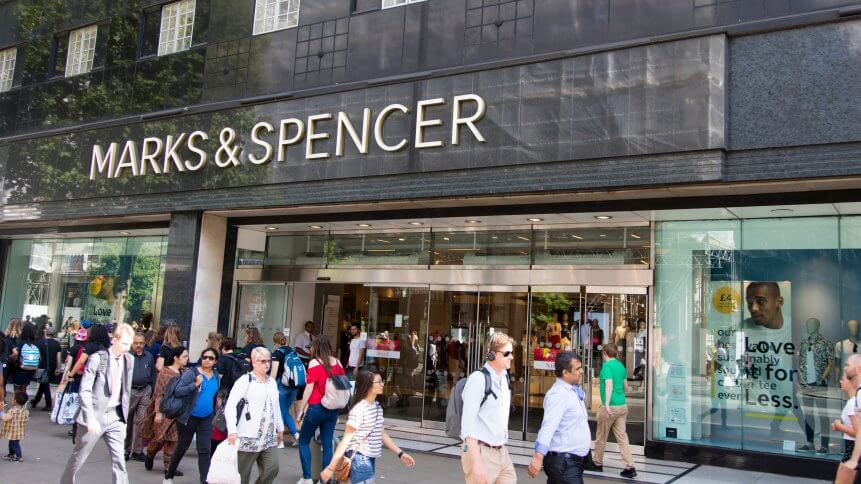Under pressure Marks & Spencer gets ‘phy-gital’

Marks & Spencer recently notched up an unenviable first as it was demoted from the FTSE 100, of which it was a founding member.
Relegation to the FTSE 250 follows various failed turnaround plans. Like many of its high street counterparts, the retailer has struggled to adapt, respond to, and capture a bigger share of spending among digitally-empowered consumers, observes Manu Tyagi, Associate Partner for Retail and Consumer Goods at Infosys Consulting.
More than 100 of its stores are now closed and large-scale organizational changes are underway, but M&S is still finding it hard to win. Nimbler competitors such as Asos, Zara and Primark are beating it in the clothing and fashion space, while Tesco and Sainsbury’s are giving M&S a run for its money in the price-sensitive food and grocery segment, and discounters like Aldi and Lidl are nibbling away at the lower end of the market.
The right stuff
M&S has always used the right buzzwords and shared the right message in the media around digital – be it the Sparks loyalty program, or the gamification of customer experience to grow targeting and in-store conversations.
It was one of the first retailers to announce a significant investment in setting up a digital lab almost six years ago. And it continues to make the right technology noises. It is, for instance, leveraging Microsoft Dynamics 365 Connected Store at its London flagship store as part of its drive to become a ‘digital-first’ retailer.
Store managers report that the solution, which analyses disparate data from video cameras and IoT sensors, gives employees a real-time understanding of what is happening within their space. This allows them to work more efficiently and provide a more personalized customer experience.
M&S has also teamed up with Founders Factory, co-founded by Brent Hoberman, founder of lastminute.com and Henry Lane Fox, to launch Founders Factory Retail.
It is Founders Factory’s exclusive UK retail partner and is investing in startups sourced through its global network. The retailer is the majority shareholder within the joint venture.
Steve Rowe, Chief Executive at M&S, said: “This gives us access to a global network of startups and entrepreneurs which will provide disruptive thinking and questioning to the way we work at a time of critical transformation within the business. Founders Factory has a great track record in creating successful businesses and by investing in new innovative technologies and products we hope to change the way we work and operate.”
A new identity
Demotion from the FTSE 100 might actually be good for M&S as it takes away the city’s focus on its performance, and could give it space to recoup, revitalize and reclaim a new identity, Tyagi reckons. This includes appealing to the new era of ‘phy-gital’ consumers who have choice, convenience and price comparisons at their fingertips.
The recent revamp of its clothing line, its joint venture with Ocado for online food delivery, the opening of new stores in Scotland, and efforts to revamp its online presence also seem to be steps in the right direction. M&S is also working to enable more delivery options and enable a seamless experience for its consumers, across the physical and digital worlds, and retain its most loyal customers.
However, looming uncertainty from Brexit, continuing outgoing overheads, nimble pure-plays and buoyant discounters will keep it under pressure. Who’d be a High Street stalwart in these fast-changing times, eh?









